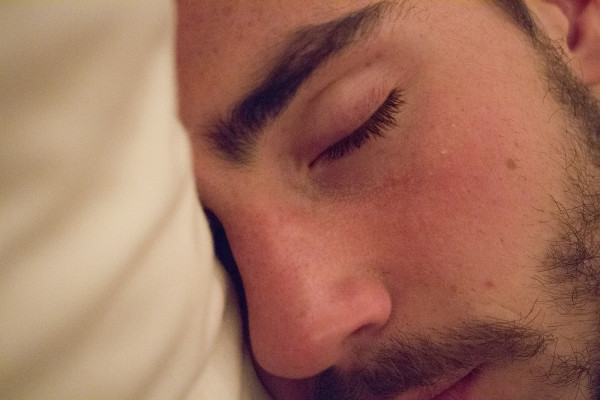In the past decade, the medical field has started a conversation on sleep that has allowed people to realize how important sleep really is. The National Sleep Foundation (NSF) holds a yearly Sleep Awareness Week during March, just when Daylight Saving Time occurs. This year, the NSF released poll results that show how busy schedules and technology in the bedroom can affect sleep quality and people’s overall growth and development.
Sleep and Pain vs. Stress (2015 poll)
Stress from busy schedules leads to less sleep and decrease in sleep quality. The NSF reported that sleep problems arise with individuals with higher levels of pain. These subjects accumulate terrible amounts of “sleep debt“, which is the amount of sleep loss from the recommended nightly hours. Americans with chronic pain received an average sleep debt of 42 minutes, or lost 42 minutes of sleep nightly, while those with acute pain reported losing an average of 14 minutes of sleep nightly.
57% of Americans reported experiencing even mild pain daily from various health problems, which correlates with higher stress. Of course, pain and stress will decrease sleep time and quality. Because of this, people will miss out on the vital REM (rapid eye movement) during sleep that relaxes muscles, repairs tissues, and helps relieve other symptoms of chronic pain. The process of rejuvenation that takes place during sleep is key to healing from chronic pain and stress.
David Cloud, CEO of the National Sleep Foundation states, “Taking control of your sleep by being motivated, setting a routine bedtime, and creating a supportive sleep environment is relevant even for those with pain.” People living with acute or chronic pain can improve the quality of their lives by making a schedule to prioritize their sleep.
Image Source: Tara Moore
Sleep in the Modern Family (2014 poll)
The NSF reports that being exposed to laptop or cellphone back-lighting before bedtime can decrease the quality of sleep. The exposure to light can reduce levels of melatonin production, which is secreted by the pineal gland that controls sleep cycles. There is a nerve pathway from our eye to parts of our brain that may be stimulated to reduce melatonin levels when we view a laptop’s light. Thus, reduced melatonin right before bedtime affects sleep outcome and decreases our health overall.
The NSF also learned that children not only lost sleep from using electronics before bed, but also from simply having electronics present in their bedrooms. Sleep quality for children was shown to noticeably decline when electronics were left switched on in bedrooms during the night.
Stimulating activity, such as viewing screens with back lighting before sleeping, should be controlled to assure a household’s overall good night of sleep. The NSF has reported that parents can help their school-age children by implementing a bedtime hour and restricting caffeine and television consumption.
Sleep is vital to recovery and to one’s overall health, and with these findings, people should learn to prioritize sleep in their daily lives.
Feature Image Source: Kelsey










